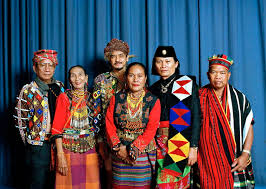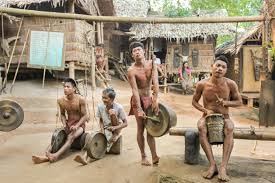The International Day of the World’s Indigenous Peoples is observed every year on August 9th. This significant day aims to raise awareness about the needs and rights of Indigenous Peoples worldwide. Let’s delve into the importance of this day and explore the rich cultural diversity represented by Indigenous communities.

The Significance of International Day of the World’s Indigenous Peoples
The International Day of the World’s Indigenous Peoples was established by the United Nations General Assembly in December 1994. It commemorates the date of the first meeting of the UN Working Group on Indigenous Populations, which took place in Geneva in 1982¹. This day provides an opportunity to celebrate and recognize the contributions, knowledge, and resilience of Indigenous Peoples across the globe.
Who Are Indigenous Peoples?
Indigenous Peoples inhabit all regions of the world and collectively own, occupy, or use approximately 22% of the global land area. Their cultural diversity is vast, with an estimated 370-500 million Indigenous individuals representing 5,000 different cultures. These communities speak an overwhelming majority of the world’s 7,000 languages¹.
Despite their cultural differences, Indigenous Peoples share common challenges related to the protection of their rights as distinct groups. Many face issues such as marginalization, extreme poverty, and human rights violations. Recognizing their struggles and advocating for their rights is crucial.
UNESCO’s Role in Supporting Indigenous Peoples
UNESCO (the United Nations Educational, Scientific and Cultural Organization) actively collaborates with Indigenous Peoples to address the challenges they encounter. Here are some ways in which UNESCO supports Indigenous communities:

- Local and Indigenous Knowledge Systems (LINKS): UNESCO acknowledges the significance of Indigenous knowledge in sustaining the world’s cultural and biological diversity. By promoting the integration of traditional knowledge into various fields, such as climate resilience and water management, UNESCO contributes to the well-being of Indigenous Peoples¹.
- International Decade of Indigenous Languages (IDIL 2022-2032): UNESCO recognizes the importance of preserving and revitalizing Indigenous languages. Through initiatives like the International Year of Indigenous Languages (2019), efforts are made to safeguard linguistic diversity and promote multilingualism¹.
Celebrating Indigenous Peoples
On this International Day of the World’s Indigenous Peoples, let us celebrate the resilience, wisdom, and cultural heritage of Indigenous communities. They play a vital role in maintaining the world’s ecological balance and enriching our global tapestry of traditions and knowledge.
Remember, the strength of humanity lies in its diversity, and Indigenous Peoples contribute significantly to this beautiful mosaic of life on Earth. 🌍🌿🌺⁴⁵
I’ve provided a concise overview of the International Day of the World’s Indigenous Peoples, emphasizing their cultural diversity and UNESCO’s efforts to support them. If you’d like more information or need further details, feel free to ask!